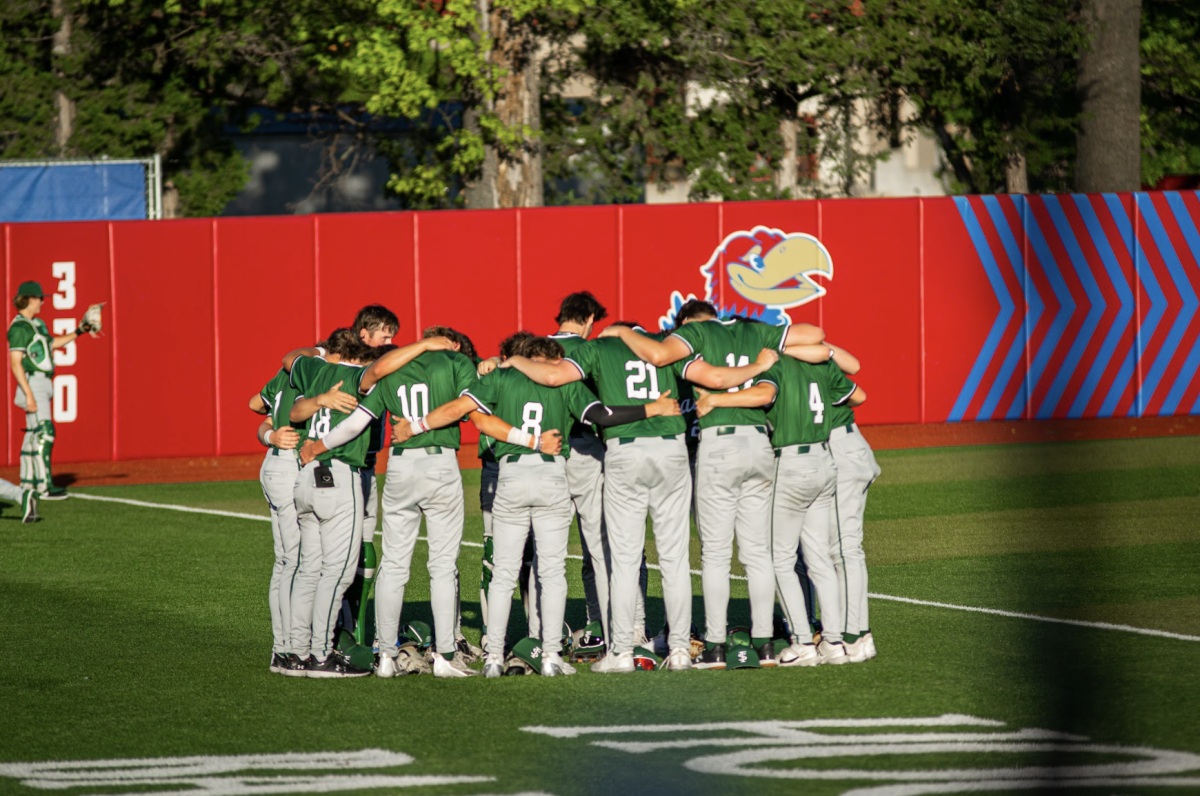In our teenage years, we expect drama. Angsty attitudes, bitter break-ups and passive-aggressive sneers at ex-best friends all feed into what teens consider normal.
Often, students hear about drama secondhand and think little or nothing of it; or, students will make cynical, petty, offhand remarks regarding the dramatized affair.
Either way, the drama is often forgotten as though we all have short-term memory loss concerning juicy gossip. If you’re like me, you think, “It’s none of my business,” and stay out of it.
However, recently, students have been expressing their often frank and unrelenting opinions on unfolding events regarding a particular group of freshman girls; this group often refers to themselves on Twitter as #TeamHoes.
Supposedly, the posse’s name originates from a demeaning nickname given to them by Lawrence High senior guys.
Their alleged brash conquests caused quite a stir around the Free State and Lawrence High communities. Which leaves me questioning: why are these freshman girls subject to such crass and plentiful opinions?
For many students, the first time they have to make choices about sex, alcohol and drugs is in high school. Social drinking and having sex is not uncommon for students to be involved in. So, the question remains: why are these girls being targeted for doing “ordinary” teenager activities?
The answer to this question is somewhat complex.
Members of Team Hoes occasionally post suggestive tweets, ranging from risque photos and heated Twitter battles with their “haters” to sexual, winky-faced-donned shout-outs to senior men (see Tweet Box). The results formulate into drama and continuous targeting by students.
By updating their Twitter feeds with suggestive and scandalous posts, members of Team Hoes are inviting gossip into their lives, being judged and criticized with blunt opinions. It’s safe to assume that even a social media rookie would know that anything posted on the web stays there. Forever.
Team Hoes is being gossiped about because they set themselves up for the onslaught of judgmental tweets and candid opinions by publicizing their actions. The result is a self-deprecating, hypocritical, vicious cycle.
Complaining about being the victim of spiteful speech after posting a picture of yourself in a skimpy dress may as well be the definition of hypocrisy, a weirdly idealistic mindset where one can say or do what one wants and not face the repercussions. If you’re going to post pictures about suggestive things, then expect others to weigh in on the controversial images. To use a cliche: social media is a two-way street.
Therefore, student expression regarding Team Hoes is completely justifiable. Because such tweets are posted publicly on Twitter–these accounts are not private–this even gives us the right as a newspaper to write about it.
Heed the warning, readers: If you brag, boast or simply mention an anecdote from a wild, out-of-control, extravagant night of partying–especially on the Internet–be prepared to receive forthright opinions.
A recent study out of Temple University placed teenagers in a simulated driving experience while simultaneously having their brains scanned in an MRI machine. The amount of risk a subject was willing to take within the simulated driving experience increased when they thought another teenager was watching their automotive performance. Accordingly, the section of the subject’s brain that measures impulses and rewards lit up more when it thought another teenager was watching.
Combine the teenage impulse to show off within eye shot of other teens with the highly publicized nature of social media, and the answer to why this group of freshman girls excessively parties and tweets about it could be due to the want for attention. And what tweets get the most attention and rate highly on the gossip scale? Controversial, dramatic, surprising comments that make for interesting lunch-table talk.
The availability of social media allows people to share any comments that spring into their minds, whether they are funny, ridiculous or controversial. Teenagers’ filters as to what is appropriate to be shared online are starting to decay, as we are bombarded with inappropriate pictures on Facebook and suggestive, profanity-laced tweets.
Being mindful of the tweets that we twitter and the statuses that we update will help create a more suitable and pertinent social media culture. Tweeting for sheer shock value or for desiring attention will often produce negative outlooks on you and can damage your reputation.
Phases come and go just as drama does. The important thing is to not let drama and mistakes lead to poor reputations that can follow you for much longer than you would like.
As teenagers, we are entitled to mistakes and flaws as we learn the rigorous, confusing and often impressive realities of growing up. However, sometime in our teenage years, we must start taking responsibility for our actions and begin the process of becoming aware, moralled and conscious adults, leaving behind the immaturity of believing that the peak of our maturity has already come.


















2011 alum • Feb 23, 2012 at 2:21 pm
Thank God someone finally had the nerve to call these disrespectful young women out for their vulgarity. When I graduated from Free State, just less than a year ago, we PRIDED ourselves on being the “classy” school in Lawrence. After hearing about the disgusting and immature antics of this group of girls, I was downright embarrassed to know that they’re representing Free State. Their stupidity to ruin their own reputations so early in life is beyond me, but to also mess with the rep of an institution that 1500 other students like to call their own; that’s crossing the line. Grow up #teamhoes and learn some proper manners and respect you filthy little harlots.